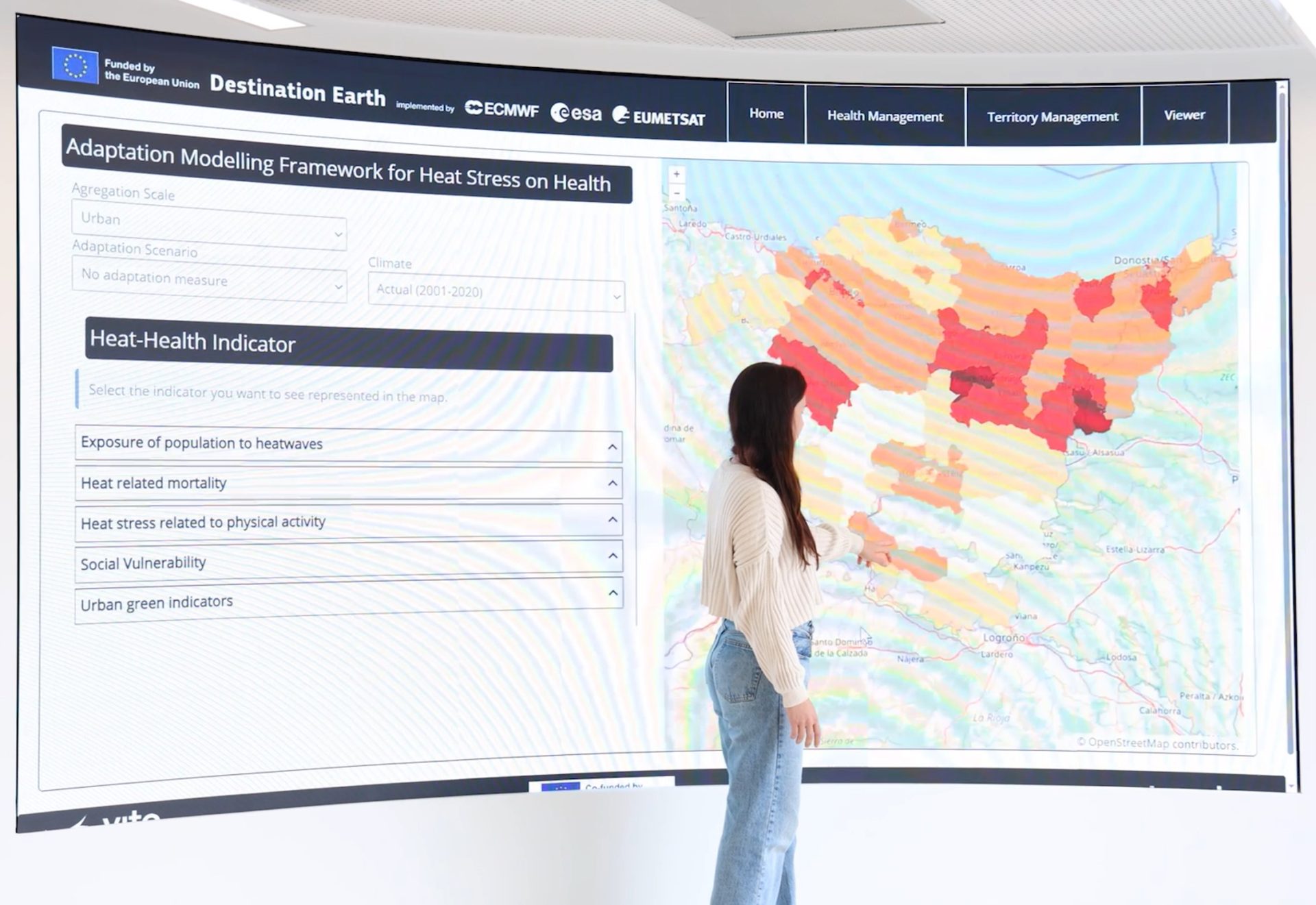"This solution has been designed to assess and manage heat stress to minimise impact on health"
An advanced system that supports the assessment of different adaptation strategies to minimise the impact of heat stress on health
TECNALIA has developed an innovative system that enables different adaptation scenarios to be modelled and assessed, considering both current and future climate conditions. This solution is designed to assess and manage heat stress at various scales, with the aim of minimising its impacts on public health, placing special emphasis on climate change adaptation.
To do so, Destination Earth's digital climate adaptation model (Climate DT) has been used, which aims to facilitate more effective and data-driven climate decision-making.
A comprehensive, data-driven approach
The system developed by TECNALIA integrates statistical models, physical simulations and artificial intelligence algorithms that provide a holistic view of urban heat stress.
- Using data from the digital twin for climate change adaptation (Climate DT), the system generates high-resolution urban maps (100 m).
- These urban maps combine climate information with socio-economic data and health determinants (age, income, etc.) that identify high-risk areas and assess the effectiveness of adaptation measures.
Impact on health and urban planning
Urban heat stress is a growing threat to public health, especially in vulnerable populations. According to the World Health Organisation, the number of people exposed to heat waves increased by 125 million between 2000 and 2016. In Europe, it is estimated that more than 70,000 deaths were related to high temperatures during the summer of 2022.
The solution developed by TECNALIA:
- It enables decision-makers to evaluate different adaptation scenarios.
- It demonstrates how nature-based adaptation measures are particularly beneficial in addressing heat risks in urban areas.
- It empowers health managers, urban planners and regional authorities to design more resilient and climate-adapted environments, ensuring they are better prepared for the challenges of climate change.
Collaboration and long-term objectives
This contract with ECMWF has been made possible thanks to the collaboration between TECNALIA and VITO. It contributes to the development of a generic climate change adaptation modelling framework in the context of DestinE. The aim is to provide accurate and accessible tools to support informed decision making in the management of heat stress and other climate risks.
For more information on this project and other DestinE use cases, please visit: Adaptation Modelling Framework for Heat Stress Exposure | Destination Earth

